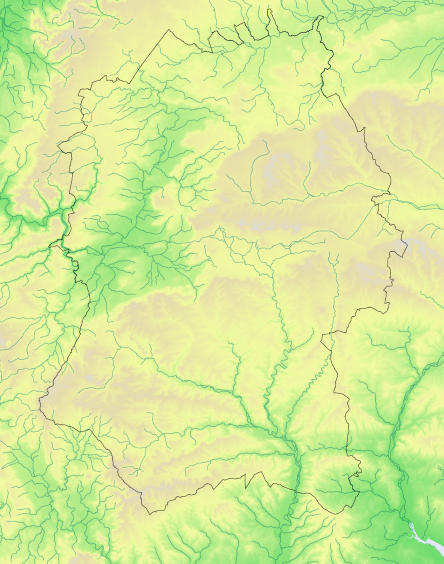Kestrel Falco tinnunculus
Breeding distribution change
Common but decreasing resident, also passage migrant and winter visitor
Atlas species lists
- Breeding distribution 1995–2000
- Summer abundance 1995–2000
- Winter distribution 1995–2000
- Winter abundance 1995–2000
- Breeding distribution 2007–2012
- Summer abundance 2007–2012
- Winter distribution 2007–2012
- Winter abundance 2007–2012
- Breeding distribution change
- Summer abundance change
- Winter distribution change
- Winter abundance change
More Kestrel maps
- Breeding distribution 1995–2000
- Summer abundance 1995–2000
- Winter distribution 1995–2000
- Winter abundance 1995–2000
- Breeding distribution 2007–2012
- Summer abundance 2007–2012
- Winter distribution 2007–2012
- Winter abundance 2007–2012
- Breeding distribution change
- Summer abundance change
- Winter distribution change
- Winter abundance change
More maps for this atlas
Map explanation
This map shows where changes occurred in the breeding season distribution of the species in Wiltshire between 1995-2000 and 2007-2012, as revealed by the fieldwork for Birds of Wiltshire (Wiltshire Ornithological Society 2007) and the shared fieldwork for Bird Atlas 2007-2011 (BTO 2013) and for Wiltshire Tetrad Atlas 2007-2012.
Gains and improvements
Status
Nos tetrads

Absent to present
81
9%

Present to breeding
125
14%

Absent to breeding
29
3%
No change
Status
Nos tetrads

Present in both
253
28%

Breeding in both
101
11%
Losses and declines
Status
Nos tetrads

Present to absent
107
12%

Breeding to present
116
13%

Breeding to absent
46
5%
Kestrels are one of the world's most adaptable and widely distributed birds of prey, found throughout most of Eurasia and Africa. They occupy a wide variety of mainly open habitats, such as farmland and chalk downland, but have also learnt to live in built-up areas. In Britain they are regularly seen along motorways, hunting for small mammals in the undisturbed grass verges.
Bird Atlas 2007-2011 recorded Kestrels in nearly 90% of 10km squares in Britain and Ireland in both winter and the breeding season. This represented a 6% reduction in breeding range since the 1968-72 Breeding Atlas, but concealed a much more significant reduction in population size of 44% since 1970. The causes of these reductions are unclear but are thought to include agricultural intensification, declines in their main prey species through the use of improved rodenticides and competition from other raptors.
In Wiltshire WTA2 recorded them in 701 tetrads, with breeding confirmed or probable in 255 of them.. These figures represent modest declines since Birds of Wiltshire where they were recorded present in 748 tetrads with breeding in 263.
References
The following references are used throughout these species accounts, in the abbreviated form given in quotation marks:
“1968-72 Breeding Atlas” – Sharrack, J.T.R. 1976: The Atlas of Breeding Birds in Britain and Ireland. T. & A. Poyser
“1981-84 Winter Atlas” – Lack, P.C. 1986: The Atlas of Wintering Birds in Britain and Ireland. T. & A. Poyser
“1988-91 Breeding Atlas” – Gibbons, D.W., Reid, J.B. & Chapman, R.A. 1993: The New Atlas of Breeding Birds in Britain and Ireland 1988-91. T. & A. Poyser
“Birds of Wiltshire” – Ferguson-Lees, I.J. et al. 2007 : Birds of Wiltshire, published by the tetrad atlas group of the Wiltshire Ornithological Society after mapping fieldwork 1995-2000. Wiltshire Ornithological Society.
“Bird Atlas 2007-2011” – Balmer, D.E., Gillings, S., Caffrey, B.J., Swann, R.L., Downie, I.S. and Fuller, R.J. 2013: Bird Atlas 2007-2011: the Breeding and Wintering Birds of Britain and Ireland
“WTA2” – ("Wiltshire Tetrad Atlas 2 ") the present electronic publication, bringing together the Wiltshire data from “Birds of Wiltshire” and “Bird Atlas 2007-11”, together with data from further fieldwork carried out in 2011 and 2012.
"Hobby" - the annual bird report of the Wiltshire Ornithological Society.

